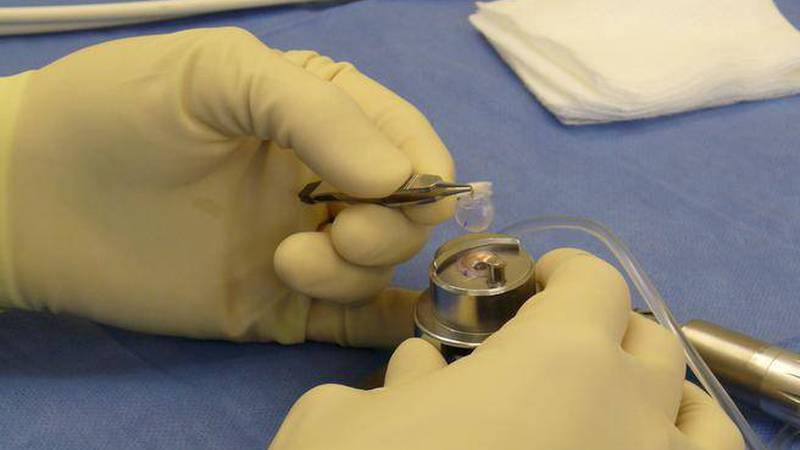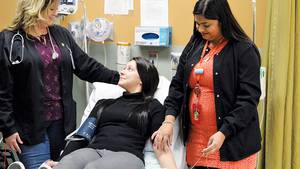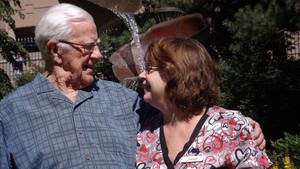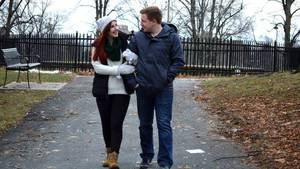Many of us are aware of the option available to register for organ donation but few are aware that, alongside your liver or kidneys, you can opt to donate tissues such as ligaments, skin, and corneas as well.
“One of the things that we’re trying to do is to put a broader focus on tissue donation,” says Harold Taylor, the health services manager of the Regional Tissue Bank at the QEII, one of the largest comprehensive tissue banks in Canada. “We need to provide a broader focus and attention because many people aren’t familiar with tissue donation.”
Bone, skin, ligaments, tendons, corneas and heart valves are among the tissues the Regional Tissue Bank has collected for transplants since 1992. Heart valves go towards repairing heart defects, and skin grafts are often used to help burn victims while their own skin heals.
The other tissues, such as ligaments, bone, and corneas, may not be used to directly save the lives of others, but according to Dr. Michael Gross, orthopaedic surgeon and medical director for the Regional Tissue Bank, they do enhance them.
“Every treatment we give either saves a life or restores patients to an active life,” says Dr. Gross, who explains that the injuries of many orthopaedic patients keeps them from being able to work or support their families. “It allows you to rebuild that person, and get them back to functioning again.”
The tissues collected by the Regional Tissue Bank, are used here at home, treating QEII patients from across Atlantic Canada. But they also send tissues across Canada as well, helping others across the country.
To continue maximizing their efforts, and to heal as many lives as possible, more people need to be aware of — and consider — the option of becoming a tissue donor.
“All these tissues are an integral part of health care,” says Dr. Gross.
Harold agrees. “With organ donation, one individual can certainly save the lives of eight people. Tissue donation can impact the lives of 50 to 75 individuals.”
People who might be precluded from donating major organs, such as the elderly, or those with certain chronic illnesses, can often still donate their tissues.
“Your heart may not be transplantable, from a life-saving perspective, but we may be able to use those valves,” says Harold, who urges prospective donors to register, and let the process screen them out if need be. “Don’t self-select yourself out of the process.”
For more information about tissue donation, please visit: www.cdha.nshealth.ca/regional-tissue-bank, and talk to your family about your wishes.








